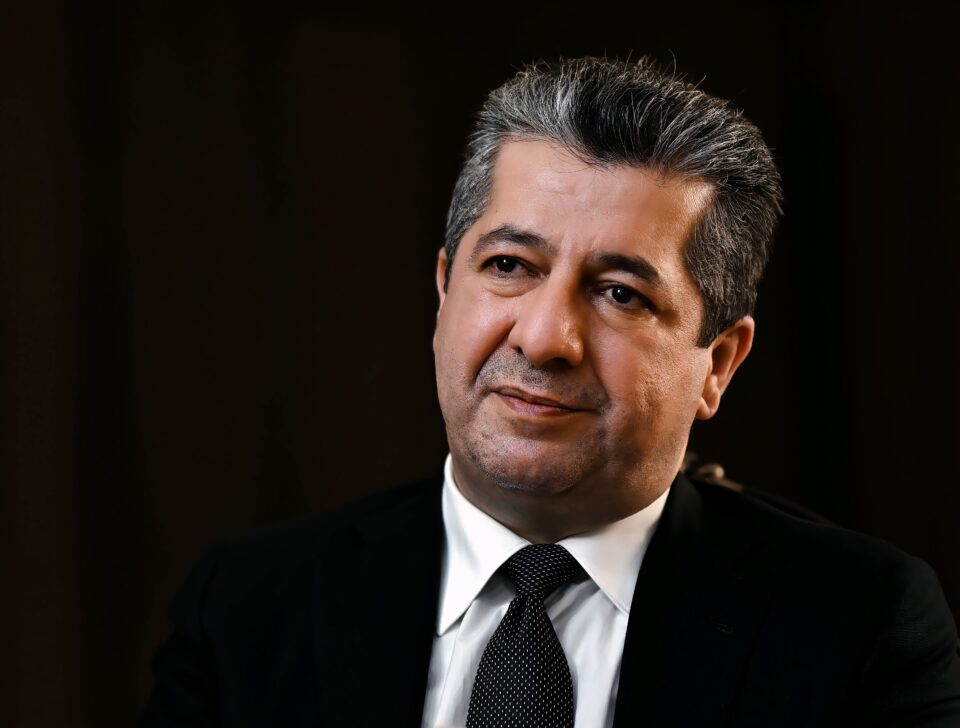Sema
“Thirty-four years on, the Kurdistan Region stands as a sanctuary of coexistence. We thank the friends who helped us and continue to support our national prosperity,” PM Barzani stated.
Kurdistan Region Prime Minister Masrour Barzani has paid tribute to the enduring legacy of United Nations Security Council Resolution 688, calling it a milestone in modern Kurdish history that transformed tragedy into a platform for autonomy, stability, and international solidarity.
In a statement shared on social media platform X to mark the anniversary of the resolution, Prime Minister Barzani expressed the deep gratitude of the Kurdish people to the international community for intervening in 1991 to halt Saddam Hussein’s genocidal campaign.
“The international community rallied to safeguard our people from genocide following UNSC Resolution 688 in 1991,” PM Barzani wrote. “Thirty-four years on, the Kurdistan Region stands as a sanctuary of coexistence. We thank the friends who helped us and continue to support our national prosperity.”
PM Barzani emphasized that the work was not finished and urged the international community to uphold its long-standing commitment to the Kurdistan Region and continue protecting its people and their constitutional rights within a federal Iraq.
He added that the global promise made in 1991 must be preserved today.
His statement comes as Kurds around the world reflect on a harrowing chapter of their past. In the spring of 1991, following a widespread uprising against Saddam Hussein’s regime in the wake of the Gulf War, the Kurdish population faced brutal retaliation. Iraqi forces launched a campaign of violence marked by bombardment, executions, and forced displacement—driving nearly a million Kurds to flee toward the mountains and neighboring borders.
As images of the humanitarian catastrophe reached the world, France, Iran, and Turkey formally appealed to the UN Security Council to intervene. On April 5, 1991, in a landmark decision, the Council adopted Resolution 688, condemning the Iraqi government’s repression and demanding immediate humanitarian access to the victims.
The resolution passed with 10 votes in favor, while Cuba, Yemen, and Zimbabwe voted against, and China and India abstained. Despite the geopolitical divisions, the message was clear: the international community would no longer remain silent in the face of mass atrocities.
In response, the United States, United Kingdom, and France launched Operation Provide Comfort, establishing a no-fly zone above the 36th parallel in northern Iraq. This military-humanitarian initiative created a safe haven that shielded the Kurdish people from further attacks and laid the groundwork for the emergence of a Kurdish self-governing region.
The impact of Resolution 688 was transformative. It enabled the foundation of the Kurdistan Parliament and the Kurdistan Regional Government (KRG), fostering democratic institutions and providing a platform for economic and political growth. In the decades since, the Kurdistan Region has become a model of pluralism, freedom, and coexistence in a volatile region.
Today, more than 30 countries that once stood by the Kurdish cause maintain diplomatic missions in Erbil, a testament to the enduring relationships born out of that crisis. International support, Prime Minister Barzani noted, has not only saved lives but has helped build a flourishing region with a unique democratic voice within Iraq.
As the Kurdistan Region continues to navigate challenges ranging from political disputes with Baghdad to regional security threats, Resolution 688 remains a moral and legal foundation. It is a reminder that even in the darkest of times, global solidarity can reverse the course of history and ignite hope where once there was only despair.

